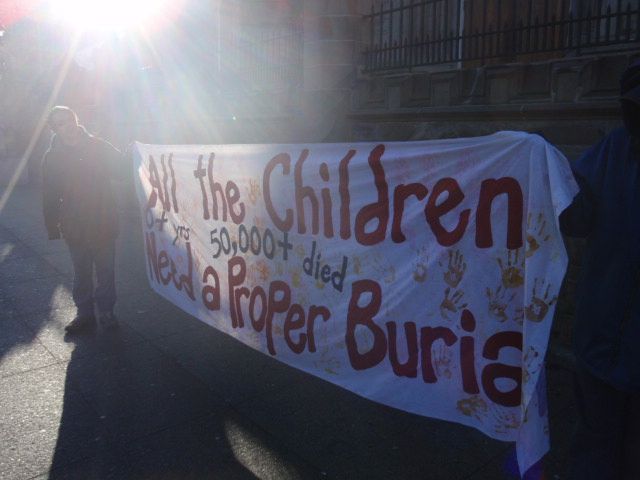SIX NATIONS AND BRANTFORD: Wouldn't a partnership be a better way to move forward?
"While maverick city Coun. James Calnan faced a barrage of criticism for breaking ranks over the city's legal action; he was right when he said the city should follow up with some sort of peace overture, instead of just legal confrontation." (Expositor editorial Jan. 7, 2009)
Six Nations has, to my personal knowledge throughout the past 33 years, made direct efforts to educate, inform and work, when possible, with the City of Brantford while respecting and protecting Six Nations land rights. Previous city councils led by mayors Charles Bowen, David Neumann, Karen George, Bob Taylor and Chris Friel have all interacted with us in efforts to move forward through similar turbulent times.
No doubt the present Mayor Mike Hancock, with his 20 years experience on city council, is also aware of these efforts and must continue with such diplomacy. And Six Nations must continue to extend the olive branch in answer to C. Orville Garlow (Expositor Opinion page, Jan. 8, 2009) because fairness and diplomacy are who we are.
Many of the city's previous mayors and councils have been Six Nations' best allies; lobbied for us and with us with no less than 19 federal ministers of Indian Affairs, numerous members of parliament and the provincial legislature in attempts to pressure Canada to resolve Six Nations' outstanding land issues in a fair and just manner.
Going forward with the City of Brantford, there is a way!
With the economy crashing into a recession, there is a great opportunity for business in implementing the Six Nations/City of Brantford Feb. 4, 1997 agreement. Six Nations can partner with investors on lands within the city of Brantford, be it an abandoned business site (to preserve as much farmland as possible) or a new site for business that meet our criteria and approval.
The lands will be held jointly by Six Nations and the developer/investor; exempt from municipal or provincial taxation per the terms of this 1997 agreement, our unique situation and the province's own legislation.
The developer/investor would pay what was saved in taxes to Six Nations to be used to repay the developer/investor the amount they initially paid for the disputed lands.
Upon the investment for the land repaid, the title will be transferred to where it should be, Six Nations.
The businesses would be issued long-term leases with lease payments securing Six Nations' perpetual care and maintenance, honouring the intent of our original agreements we had with our neighbours and the Crown. Certainty for investments would be achieved.
The City would be paid for the services they provide (fire, water, sewer, policing, garbage, etc.). Businesses would thrive having the advantage of commerce in a tax-free zone. Everyone would be working. Employment, training and apprenticeships would be available to everyone.
Six Nations would finally be included in the economy. Canada's legal duty to settle the land rights of the Six Nations People remains intact, but now big business and the City will be our allies, prompting Canada to settle with Six Nations.
The expected federal infrastructure dollars and economic stimulus package being proposed in the federal budget can only help if properly leveraged.
To date, the required investors and developers are excited and the province appears willing to amend the legislative changes arbitrarily implemented in 1997 that might have been an excuse for the City not to honour their part of the Feb. 4, 1997 agreement with Six Nations.
City of Brantford, it's your move.
Or would the City of Brantford rather be known as the place where uncertainty of land title has developers and investors suing the City and going elsewhere. Or Brantford, a place where Jane Doe, John Doe and Persons Unknown are not welcomed and subject to arrest. Or the City of Brantford, a place where Indian Fighting Lawyers and the Army are being sought to handle those pesky Indians.
Brantford, could your image get any worse?
Phil Monture
Six Nations
http://www.brantfordexpositor.ca/ArticleDisplay.aspx?e=1409631&auth=
NATIVE LAND CLAIMS
I disagree with Mr. Andrew Robinson's opinion in his Jan. 24 editorial that we, including councillors, should keep our attention and action focused on a negotiated settlement.
A negotiated settlement is, of course, the key, but Mr. Robinson has failed to consider a critical element in his reasoning -- the length of time it will take to reach a negotiated settlement. Just how long will it take to settle the land claims? Less than 12 months, a few years, or, decades?
The answer is in the following: Mr. Phil Monture, an expert in Six Nations land claims, who provides support to the federal negotiations, and who was instrumental in the City of Brantford/Six Nations 1997 agreement during the Mayor Chris Friel era, has made extra and painstaking notes on his technical work and in-depth knowledge because he says he will not be alive to see the day the land claims are settled.
The citizens of Brantford and the city and its deteriorating reputation and economy cannot wait this long until the land claims are settled. Holding the long breath is unrealistic, especially when peace-evoking solutions are within arms reach.
Danica Vanpopic
Brantford
http://www.brantfordexpositor.ca/ArticleDisplay.aspx?e=1413661&auth=





